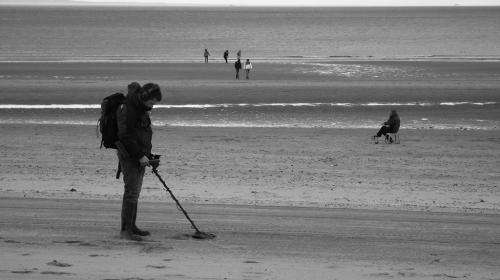Amplifier invention probes far beneath the surface

An exploration "amplifier" under development in WA could allow scientists to see deeper into the Earth and search further below the surface of Mars.
The heart of the amplifier was created by UWA physicist Francis Torres and it is hoped the technology could be added to existing exploration tools to find hidden mineral deposits or water.
"Imagine you're at the beach with a metal detector and you're sweeping the sand," Mr Torres says.
"If there's a gold ring in the sand but it's just a little deeper than your sensor can pick up then you're just going to miss it.
"But if you connect the sensing element of your metal detector to my amplifier … then the small signal coming from the ring is amplified and is big enough that your sensing element can pick it up."
Mr Torres, who worked on the project as part of his PhD research, says the amplifier is built on an interaction between light and sound and is probably 10-20 years away from being ready to use.
It works with electromagnetic sensors, commonly referred to as metal detectors.
"What [electromagnetic sensors] do is they send an electromagnetic field – you can think of it as waves going into the ground – and then sometimes they hit treasure, a deposit of metal or even water," Mr Torres says.
"If this treasure, if this chunk of metal or water gets a wave then it reacts to this wave and it sends a response back up."
The response picked up by the sensor alerts scientists to a conducting object below the ground, which can then be identified using geological knowledge of the area and other clues.
Mr Torres says the technology has the potential to be picked up by geophysical exploration companies around the world.
But Mr Torres is passionate about seeing his work harnessed for space and planetary exploration.
"Curiosity just landed on Mars with 10 or a dozen different tools – some to chemically analyse the soil, some to scan with cameras – a whole bunch of really cool tools," he says.
Mr Torres believes adding his amplifier to existing technologies on Curiosity could greatly increase their performance.
"For example, if they were probing for water under the surface, which is extremely relevant for the Mars colonization mission in ten years, you could look much deeper under the ground than current tools allow by sticking my amplifier to it," he says.
Mr Torres moved to WA from Canada in 2009 and collaborated with companies in France, Taiwan, Queensland and Perth on the project.
Provided by Science Network WA


















